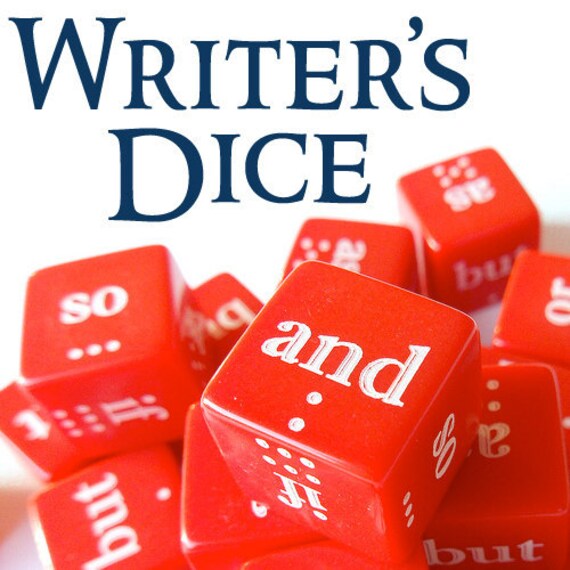- Agents
- Author News, Deals
- Awards
- Bad Poetry
- Blog News
- Books
- Career
- CBA
- Collaborating and Ghosting
- Conferences
- Current Affairs
- Deep Thoughts
- Favorite Books
- Featured
- Film
- Marketing and Platforms
- Proposals
- Publishing
- Questions from Beginners
- Quick Tips
- Religion
- Resources for Writing
- Self-Publishing
- Social Media Critique
- The Business of Writing
- The Writing Craft
- Thursdays with Amanda
- Trends
- Uncategorized
- Web/Tech
Category : Quick Tips
-
Continue Reading "Thursdays with Amanda: Impatient Readers Are Not The Boss of You"
Thursdays with Amanda: Impatient Readers Are Not The Boss of You
 Amanda Luedeke is a literary agent with MacGregor Literary. Every Thursday, she posts about growing your author platform. You can follow her on Twitter @amandaluedeke or join her Facebook group to stay current with her wheelings and dealings as an agent. Her author marketing book, The Extroverted Writer, is available from Amazon and Barnes & Noble.
Amanda Luedeke is a literary agent with MacGregor Literary. Every Thursday, she posts about growing your author platform. You can follow her on Twitter @amandaluedeke or join her Facebook group to stay current with her wheelings and dealings as an agent. Her author marketing book, The Extroverted Writer, is available from Amazon and Barnes & Noble.Have you ever said or heard a published author friend say the following?
“I have to write this spin-off book because my fans are demanding it.”
“I don’t have time for marketing right now, because my fans are going to kill me if I don’t get them the sequel asap.”
“My readers won’t stop bothering me about my character Jack! They want a book about him and I’m stressing out because I don’t know how to fit it into my schedule.”
The pressure readers can create is impressive. But it can also be distracting.
Let’s say you’re a rock star and you’re in a big arena doing a concert. You get done with a song and are about to move on to the next one on your set list when a group of fans in row two demand a very particular song from one of your lesser-known albums. What do you do? Do you obey them at the risk of making everyone else in the stadium frustrated at you for replacing a known and loved song with one of your b-side tunes?
Or let’s get even more specific. Let’s say you were a writer for the show The Office. From season one, fans were chiding you about getting Jim and Pam together. Would you have given in to their demands even though you knew that if you dragged it out for a few seasons, it would be even more rewarding?
In both of these cases, it’s easy for us to answer with resounding NO’s. Of course you wouldn’t
-
Continue Reading "How to Ruin a Book at the Last Minute: Part 3, Avoiding Anticlimax"
How to Ruin a Book at the Last Minute: Part 3, Avoiding Anticlimax
 Continuing my series on writing great endings, I’m talking today about how to provide satisfactory resolution without letting the energy of your story run out.
Continuing my series on writing great endings, I’m talking today about how to provide satisfactory resolution without letting the energy of your story run out.I spent last week talking about all the resolution the reader expects from the denouement– resolve the events of the climax, answer unanswered questions, wrap up subplots, and establish main characters’ immediate futures. Sounds like a lot of content, right? But you as the author have a delicate balancing act to maintain, because while it’s true that the reader is going to be dissatisfied if you leave out the resolution they expect, it’s also true that there’s no better way to make sure your reader’s enthusiasm has flagged by the time they read the words “The End” than by dragging the book out two chapters after the story has actually ended. Ending on an anticlimax leaves a dull taste in the reader’s mouth and causes their last impression of your book to be a less positive one than if you send them out on an emotional high note, and the way to do this is to fit all your resolution in before the excitement of the climax has fully worn off.
The reader’s emotional high point usually coincides with the characters’, which is usually the climax– in a romance, the climax is not the wedding, but the dramatic moment when Slim rescues Peggy Sue from the train tracks and confesses that he always loved her, he just didn’t think a lawman had any right to ask a nice well-bred young lady to marry him and share his dangerous life. This is the moment when tension and emotions are the highest, and this is the moment that readers have been waiting for. Sure, they want to read that the happy couple got off the train tracks in time and know that Salty Sam is going to jail for his crimes, but the story is effectively over
-
Continue Reading "What's the best writing advice you've ever received?"
What's the best writing advice you've ever received?
So it’s spring break for most people. You might be heading out of town, or driving to the beach, or trying to find a place to relax and dive into that new book you bought. I’m going the same thing — well… I live at the beach, so I’m not heading there, but I am trying to ditch the crowds find some quiet so I can read today. I have a long list of projects I want to get caught up on, so instead of doing emails and taking phone calls, I’m going to try and get away and just read for a while.
And that, of course, means I don’t think I’ll take the time to create a new blog post. Instead, I’ll let you YOU create it. One simple question: What is the best writing advice you’ve ever received?
It might be something about craft, or a trick you learned, something about writing quickly or leaving writer’s block behind. It could be advice on creating characters, or raising the stakes, or leaving people with a memorable lesson. Whether you write fiction or nonfiction, you’ve no doubt heard (or read) some great bit of wisdom that you took to heart and you noticed it changed your work. Share it with us. Just click on the “comment” bar below and offer the best piece of writing advice you’ve ever received. You’re welcome to give us context, and tell who said it and what the circumstances were, if you want to — but don’t feel you HAVE to. You’re welcome to just offer one sentence with the advice you’ve got.
I do this once each year or so, and I have gleaned some wonderful tips from people over the years. Would love to hear what you have to share with your fellow writers. What’s the best writing advice you’ve ever received?
-
Continue Reading "NOTES FROM UNDER A DESK"
NOTES FROM UNDER A DESK
By guest writer HOLLY LORINCZ

Holly Lorincz is the newest agent at MacGregor Literary; she was mentored by president Chip MacGregor for a year before her promotion, while also maintaining an editing and publishing consultation business, Lorincz Literary Services (http://literaryconsulting.com).
NOTES FROM UNDER A DESK
I admit it. I’m under my desk. Hiding.
No, there is not a knife-heavy serial killer lurking behind my door.
No, my boss is not on the rampage (today).
No, my mom is not at the door with a list of potential husbands.I’m hiding because Chuck at Writer’s Digest did me a solid and featured my New Literary Agent Bio on his blog — a blog that has been reposted by seemingly hundreds of other bloggers. Of course, as a new agent, I need the exposure, and I’m relieved people in the industry know I’m alive. I’m not being flippant when I say I’m hugely grateful for the support and excited to continue building my client list.
So why hide? Because. I. Have. 497. Queries. In. My. Inbox.
I’ve created a response system . . . but it’s become more like bloody triage at the scene of a train wreck. I know, I shouldn’t complain. And I am happy to wade my way through the proposals, as long as I’m given the time to do it. Unfortunately, now I’m starting to get the second wave of letters from the first responders. Statements ranging from “I wrote to you five weeks ago and have yet to hear back” to “If you’re not interested, it’s still polite to write back” to “I sent you my query because Writer’s Digest said you were accepting queries; do you ignore everyone?” to “Hey, maybe you should give a crap about someone else other than yourself.”
I have to be careful because my first reaction to the squirrely ones is to immediately hit send on
-
Continue Reading "The Amazingly Easy Short Cut Guide To Becoming A Great Writer (Tongue-In-Cheek Advice for The Lazy)"
The Amazingly Easy Short Cut Guide To Becoming A Great Writer (Tongue-In-Cheek Advice for The Lazy)
BY GUEST AUTHOR KATHARINE GRUBB
Some are born great writers, some aspire to being a great writer and some have writerly
greatness thrust upon them. Then, sometimes, neither of those three options apply to us and we have to bushwhack our own path to greatness.Is it just me, or does that sound like a lot of work?
I’d like to suggest that our writerly ambitions can be accomplished with little or no effort. In fact, I have a list of ten things you can do (or not do) to accomplish this goal. (If accomplishing goals is your thing.) I would have come up with eleven, but I got tired.
1. Don’t Write. Your day is busy enough. In fact, spend your down time doing things like hurling birds into piles of thieving pigs. Tell yourself that this is brain work! Your writing future is dependent on whether or not you see Downton Abbey! Every time you have a nagging thought that tells, you that maybe you should do Nanowrimo or something like that, just watch an episode of Hoarders until the feeling goes away. Smugness, with lack of physical activity, can be just as comforting as that pesky sense of accomplishment that comes with dedication and commitment. Trust me.
2. Don’t read. This is obvious. Since really there aren’t any new plots, there isn’t any point in reading at all. If you need to know something, don’t go any deeper than a search on Wikipedia. If you want a story to entertain you, you’ve got Netflix, right? Besides fiction is made up stories, which are basically lies. Just don’t bother. In fact, if you are reading this blog, stop right now and turn on Pandora, the Shakira station.
3. Hang Out With Stupid People. This should be easy. If you want to avoid greatness, then spend a lot of time with those who are content to stay where they
-
Continue Reading "Thursdays with Amanda: 30 Random Publishing Facts"
Thursdays with Amanda: 30 Random Publishing Facts
 Amanda Luedeke is a literary agent with MacGregor Literary. Every Thursday, she posts about growing your author platform. You can follow her on Twitter @amandaluedeke or join her Facebook group to stay current with her wheelings and dealings as an agent. Her author marketing book, The Extroverted Writer, is available from Amazon and Barnes & Noble.
Amanda Luedeke is a literary agent with MacGregor Literary. Every Thursday, she posts about growing your author platform. You can follow her on Twitter @amandaluedeke or join her Facebook group to stay current with her wheelings and dealings as an agent. Her author marketing book, The Extroverted Writer, is available from Amazon and Barnes & Noble.I turn 30 on Sunday (which is bittersweet…bitter because, well, I’m getting older…sweet because whenever people say “but aren’t you too young to be an agent?” I can reply “I’M THIRTY!”), and to commemorate this event, I decided to offer 30 completely and utterly random facts about publishing.
1. Publishing comes to a screeching halt in the month of December. This year, I’ve noticed a bit more going on than normal, but typically December is a vortex in which manuscripts are either lost or put on hold.
2. Agents who charge for their services are SCAMMING YOU.
3. Whenever editors (or agents, for that matter) mention a very specific type of book that they want…chances are, they won’t acquire it even if you show it to them. Situations like that are the result of meetings they’ve been in where they have either brainstormed or been told to look for something. But the mind can so easily change over time, and the desire for a historical serial killer novel will most likely either fade or they’ll take a look at what that actually looks like and decide they’re going to pass.
4. Speaking of me being thirty, in NYC, there are a number of twenty-something publishing professionals. Even ones who are building their own lists. So while you may be shocked to see someone “so young” in the business, it’s actually quite common.
5. HOWEVER, in the CBA (the religious side of publishing) there are far, far fewer twenty-somethings. It’s sad.
6. Yes, BEA is as crazy as
-
Continue Reading "10 Gift Ideas for Writers"
10 Gift Ideas for Writers
 Amanda Luedeke is a literary agent with MacGregor Literary. Every Thursday, she posts about growing your author platform. You can follow her on Twitter @amandaluedeke or join her Facebook group to stay current with her wheelings and dealings as an agent. Her author marketing book, The Extroverted Writer, is available from Amazon and Barnes & Noble.
Amanda Luedeke is a literary agent with MacGregor Literary. Every Thursday, she posts about growing your author platform. You can follow her on Twitter @amandaluedeke or join her Facebook group to stay current with her wheelings and dealings as an agent. Her author marketing book, The Extroverted Writer, is available from Amazon and Barnes & Noble.Ever wondered what to get your critique partners or writer friends/spouses for the holidays? Or maybe you’re at a loss for what to ask for this year? Never fear. I’ve got a drool-worthy list right here. With gifts sure to please you/the daydreaming wordsmiths in your life…regardless of your price range.
 1. Never underestimate a writer’s need for a librarian. When the Internet fails to provide much-needed search results and the writer’s list of historians and experts proves to be unhelpful, the first place many go is straight to the town library. And they wouldn’t have it any other way. It gets lonely, staring at a computer for hours on end. The library gets writers out of the house. We agents believe such behavior should be encouraged as often as possible. That’s why this mug is the perfect reminder that just because you don’t know what the Sami people wore in 1710, doesn’t mean all is lost. Keep calm. Ask a librarian.
1. Never underestimate a writer’s need for a librarian. When the Internet fails to provide much-needed search results and the writer’s list of historians and experts proves to be unhelpful, the first place many go is straight to the town library. And they wouldn’t have it any other way. It gets lonely, staring at a computer for hours on end. The library gets writers out of the house. We agents believe such behavior should be encouraged as often as possible. That’s why this mug is the perfect reminder that just because you don’t know what the Sami people wore in 1710, doesn’t mean all is lost. Keep calm. Ask a librarian.
2. If you’ve ever been around your writer friend(s) when they’re in the midst of writer’s block, you know it’s a painful sight. Bags under the eyes. Unkempt hair. Dirty clothing. While their children have gone unfed, their house uncleaned…okay, so in all honesty, the very same thing happens when a writer is under deadline. So all the more reason to give your writer friends these Writer Dice. They not only help with plot formation, but can get stories out of sticky situations. Meaning less time spent slaving away at the keyboard, writing and
-
Continue Reading "Thursdays with Amanda: 10 Things I’m Tired of Seeing"
Thursdays with Amanda: 10 Things I’m Tired of Seeing
 Amanda Luedeke is a literary agent with MacGregor Literary. Every Thursday, she posts about growing your author platform. You can follow her on Twitter @amandaluedeke or join her Facebook group to stay current with her wheelings and dealings as an agent. Her author marketing book, The Extroverted Writer, is available from Amazon and Barnes & Noble.
Amanda Luedeke is a literary agent with MacGregor Literary. Every Thursday, she posts about growing your author platform. You can follow her on Twitter @amandaluedeke or join her Facebook group to stay current with her wheelings and dealings as an agent. Her author marketing book, The Extroverted Writer, is available from Amazon and Barnes & Noble.(I’m taking a break from all-things-marketing for the rest of 2013…so if you’re here for posts on platforms and promotions, stay tuned…they’ll come with the new year).
I did something like this on my Facebook page awhile back, so I figured I’d try it here!
10 Things I’m Tired of Seeing
1. Opening scenes that involve the main character (and his village, family, etc.) under sudden attack from the bad guys (within fantasy fiction). I’d say 70% of the fantasy novels I look at start this exact way. The second most common opening scene in fantasy involves a similar attack, except the focus is on a person or group who is trying to rescue a baby.
2. Books that promise “5 Secrets” or “10 Reasons” but aren’t clear what those 5 or 10 things are within the text (within nonfiction).
3. Salvation stories (within religious fiction). When it comes to a spiritual arc, this is ALL I SEE. It’s as if interesting plots only happen to characters who aren’t yet totally on board with Christianity. Authors need to push themselves to go deeper with their spiritual threads. There is an entire life AFTER one’s conversion. Show me that.
4. Love that is really just lust (within romance fiction). I see it all the time and I’m sick of it. It’s like one moment the characters are casually talking, the next they’re fantasizing about one another’s bodies while claiming to be entirely smitten. Come on. You want me to believe that they’re meant to be? Have them fall in
-
Continue Reading "How does a new writer get noticed?"
How does a new writer get noticed?
A regular reader of the blog sent in this question: What can a new author do to get noticed by an agent or editor?
The most essential thing you can do as someone new to the industry is to be a great writer, of course. All the agents and editors have seen wannabe writers who are anxious to get published, but haven’t put in the time to really learn the craft. We see stories that have plot problems, shallow story lines, weak characters, bad dialogue, tons of description… And the surprising thing to me is that I’ll sometimes see that from a writer at a conference who is pushing hard for representation.
It’s why I’ll frequently ask people at a face-to-face meeting, “What’s your goal for this meeting?” I mean, some people at a conference are looking for me to react to their story. Others want to show me some writing and interact a bit on it. Some people just have questions about the business or their career. But if a writer sits down at a ten minute meeting and expects an agent to offer representation, that’s probably unrealistic. A much more realistic goal would be to have a discussion about the salability of your work, and see if the agent or editor wants to take a more in-depth look at some later date. Maybe have you email the manuscript to him or her.
If you want to get noticed at a conference, show up for your appointment on time. Dress professionally. Have a brief pitch prepared, and make sure you’ve actually practiced it out loud, so you know what you’re going to say. (Your family will think you’ve gone crazy for talking to yourself in the basement… but that’s okay. If you want to be a writer, you probably already qualify as “crazy.”) Do some research on the agents, to make sure you can target your pitch. (I’ve lost
-
Continue Reading "Pitching: Are You Prepared?"
Pitching: Are You Prepared?
Guest writer HOLLY LORINCZ is a novelist as well as a publishing consultant at MacGregor Literary, and Chip’s assistant. Before Mac Lit, Holly was the editor of a literary magazine and then an award winning instructor, teaching journalism, speech and writing at the high school and college level. She was also a nationally recognized competitive speaking coach for years, giving her a unique perspective on book pitches.
PITCHING: ARE YOU PREPARED?
By Holly Lorincz
The brilliant Chip MacGregor (the man who signs my checks) recently posted an article regarding what agents look for when they attend writing conferences. I would like to extend his comments on pitches, since many of you are getting ready for RWA.
When was the last time you were at a conference, pitching? Sitting in a hotel banquet room crowded with tables and sweaty, nervous writers? I’m not saying that to be judgmental . . . I’ve been that sweaty, nervous writer hoping to win over an agent with my charm, if not my book. I went in with my satchel stuffed with one-sheets, copies of the synopsis and the first fifty pages. I’d even made up clever business cards. I was dressed in a skirt and heels, making sure I didn’t look stupid even if I said something stupid. Which, with me, was bound to happen. And knowing that, I practiced the heck out of my pitch, making sure I sounded comfortable and natural (though completely memorized) while describing the hook and major premise in less than two minutes. I made sure the agents/editors I was signed up to talk to were actually looking for books in my genre, checked out their bios so I could try to figure out what they might be interested in. Oh, I had done my research. I was prepared.
Shockingly, a good chunk of the writers were less prepared. Or not prepared at all. They were using their expensive


